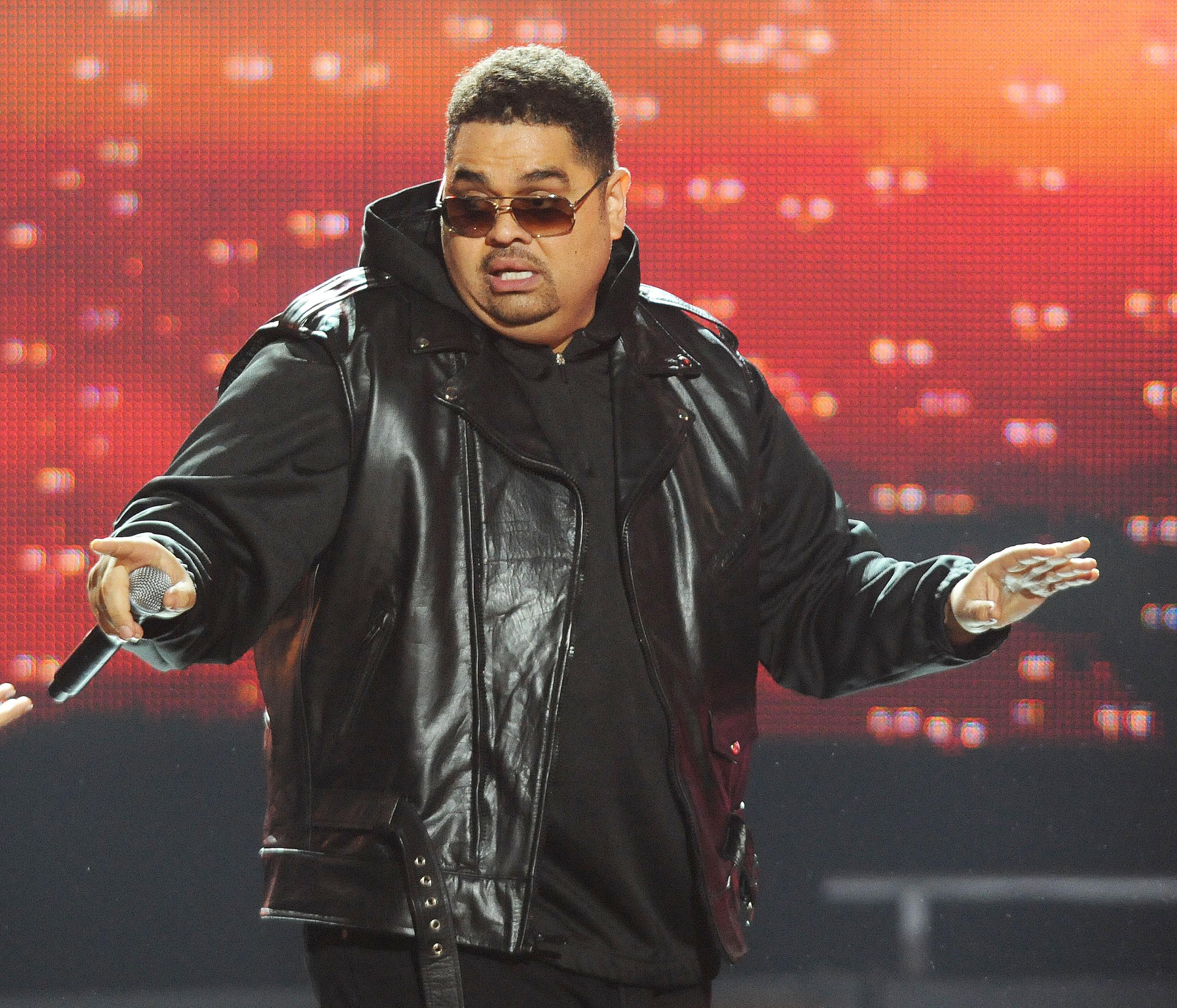The rapper and actor Heavy D, born Dwight Arrington Myers in 1967, died yesterday from complications resulting from pneumonia. Best known for his hit singles “Now That We Found Love” and “Nuttin’ But Love,” as well as his theme song for In Living Color, Heavy D also helped change the way people see overweight rappers: Once objects of fun, they’re now taken seriously. Dwight Myers played a significant role in that shift.
For a variety of reasons, heavyset male performers have been much more prominent in hip hop than they have in rock ‘n’ roll. Some of those reasons are cultural, others are commercial: Rap has always had a comical side, and some early rappers were marketed (and chose to market themselves) as fat clowns.
Mostly famously, of course, there are the Fat Boys—who were first known as the Disco 3. (They even refer to themselves as the Disco 3 in a novelty record that helped launch their careers; amazingly, Prince Markee Dee is barely overweight in that early video.) The Fat Boys made some memorable and respected records that had nothing to do with their weight: “Can You Feel It” and “Stick Em,” for instance. But their comical size was always the easiest thing to sell.
Such marketing motives may have prompted other physically large rappers trying to achieve similar mainstream success to add a weight-related adjective to their names. It’s worth noting, though, that many such adjectives were meant to convey positive associations that have nothing to do with physical size. “Big” can refer to metaphorical weight, of course, and “heavy” can allude to depth or toughness. (To my knowledge, no rapper has ever called himself M.C. Obese Bob.) Some rappers with weight-inflected names actively attempt to reclaim their descriptors: Fat Joe (who has recently lost weight), for instance, declares that “the name is Fat Joe, ’cause Joe is living fat.” Moderately successful mid-’90s rapper Pudgee the Phat Bastard mixed self-deprecation with braggadocio by using the ph- spelling of the word.
Still, many of these men eventually suffered health complications; when Buffy (born Darren Robinson), a member of the Fat Boys, died in 1995, he weighed 450 pounds. Along with the serious hit records released by Heavy D and others, such tragedies have changed the way obesity is addressed in hip hop. Before Big Punisher (who was not obese prior to his 20s) passed away in 2000, he was keenly aware that he was in dangerous territory: On his single “It’s So Hard,” released just after his death, he declares, “I just lost 100 pounds! I’m trying to live! I ain’t going nowhere! I’m staying alive, baby!”
Using his weight for laughs for was part of Heavy D’s showbiz shtick when he emerged on the scene, but by the early ’90s he had moved away from that first identity and displayed genuinely dynamic talents on a variety of hit records. Not long thereafter, Chubb Rock jumped upon the scene with witty, energetic records of his own. Twice in “Ya Bad Chubbs,” in addition to proclaiming that he is “rich like Jimmy Swaggart,” he declares himself to be ugly. The Notorious B.I.G. would say this about himself as well (whereas Big Pun emphasized the power of “my pretty face and my gangsta wit”).
In more recent years, references to food in rap have continued to evolve, not only past the Fat Boys, but also beyond Notorious B.I.G.’s rhapsodizing of a “T-bone steak, cheese, eggs, and Welch’s grape.” Ghostface Killah, who suffers from diabetes, has been making cryptic references to fruits and sweets for years (and also to ziti, grouper, and many other foods). Up-and-coming, overweight, quasi-underground rapper Action Bronson, a trained chef and gourmand, has made high-end food and cooking a major part of his persona; he’s even put instructional cooking videos on YouTube. Whether his odes to shiraz and brunch will herald a new era in hip-hop eating only time will tell.
